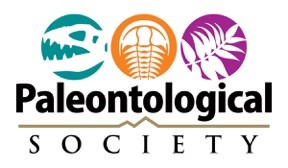Dear colleagues,
In response to discussions with fellow paleontologists and officers from the Department of Interior, we have substantially revised our FAQ on the proposed rules for fossil collecting on lands managed by that agency. These rules are open for comments through 6 February 2017. As these rules will have a large impact on paleontological collecting in the United States, Paleontological Society members are encouraged to make their voices heard.
Sincerely,
Steve Holland, Past-President
FAQ on the Department of Interior’s proposed rules for fossil collecting
(v. 2, revised 22 Dec 2016)
I thought the Paleontological Resources Protection Act (PRPA) is already law. What is this about?
PRPA was signed into law on 30 March 2009, and federal agencies were tasked with writing their own rules for how they would put the law into effect. The rules for the Department of Agriculture went into effect on 18 May 2015. Now, the Department of Interior has finished the draft of its rules, and it is open for comments until 6 February 2017.
Preservation of paleontological resources sounds like a great idea. Why are so many concerned?
Indeed, the rules for PRPA will be effective in protecting scientifically valuable rare fossils, such as many vertebrates. Because many non-vertebrate sites have fossils that are orders of magnitude more abundant, invertebrate paleontologists, paleobotanists, micropaleontologists, ichnologists, as well as some vertebrate paleontologists have raised several concerns about the proposed rules, including:
• a process that requires obtaining permission to release or publish the coordinates on fossil localities, hindering the ability to use paleontological data collected on federal lands in databases such as the Paleobiology Database.
• a permitting process that can take several months and that could delay graduate student research.
• restrictive limits on the amount of material that could be collected by amateur paleontologists, who can meet the requirements needed for obtaining a permit only if they apply with a professional paleontologist.
• creating storage and reporting burdens on museums, yet offering no funding to meet these burdens.
PRPA allows for casual collecting without a permit. Can’t we just collect our fossils that way? Wouldn’t reconnaissance collecting be a form of casual collecting?
No. If you collect fossils for research, that is not considered casual collecting. If you are conducting research, you must obtain a permit.
The law is the law. Can anything be changed?
Federal agencies have considerable latitude in how they implement the law, because they are required to implement the law in accord with good scientific practice. The Department of Interior could readily enact several changes that would better balance the needs of invertebrate paleontologists, paleobotanists, micropaleontologists, and ichnologists, as well as those that collect common vertebrate fossils. Officials with the Department of Interior are enthusiastic about working with paleontologists, but they need specific suggestions. Several changes would substantially improve the proposed rules, including:
• allow a researcher to request non-confidentiality of the location of fossil sites when they apply for a permit. This would allow local managers to aid the science and focus protection efforts on those sites that need it.
• expedited permitting for surface collection of common fossils, including the ability to obtain an on-the-spot permit at regional offices. At the outside, approval of surface collection of common fossils in non-sensitive areas should take no more than 10 days.
• allow flexibility in the limits for casual collecting.
How do we request changes to the Department of Interior’s implementation of PRPA?
Go to the Federal Register website by 6 February 2017 to read the proposed rules and comment on them. The rules begin on page 88187, so you’ll need to skip over the first several pages. Your comments will be most effective comments if they make specific changes to the wording of specific rules. Be sure to cite the rule (e.g., Subpart A, section 49.25), your proposed rewording, and a brief justification. The law is in place, and using the comments just to complain about it will not help. We have an opportunity to work with the Department of Interior to develop rules that promote paleontology for all.
My colleagues have already done this. Do I need to?
Yes. The best way to get changes that promote paleontology is to let federal agencies know how the rules should be changed to meet the needs of all paleontologists. Even if a colleague has made the same comments as you, hearing from many paleontologists helps the Department of Interior know the importance of particular rule changes.
Reprinted with permission from the Paleontological Society.
